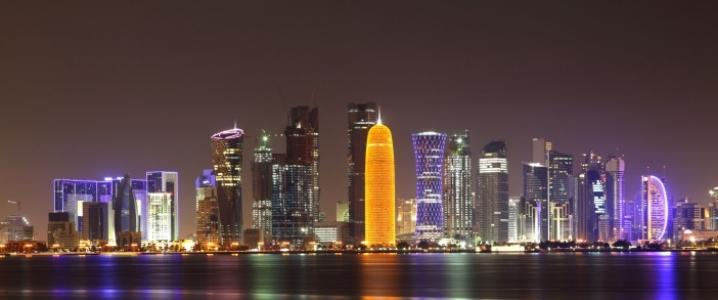Authored by Tim Daiss via Oilprice.com,
Much has already been written about how Qatar, Australia and even the U.S. are jockeying to lock in global LNG market share. The race for top LNG global producer comes as global markets for the super-cooled fuel morphs from usually distasteful (from the buyer’s perspective) over-reliance on long-standing 20-year restrictive off-take agreements to a mix of long-term agreements, mid-term deals, short and pure spot deals, while a myriad of players, including trading houses like Trafigura, Vitol, Gunvor and Glencore are changing market fundamentals. These changes will increasingly see the fuel trade more like a real commodity in some ways similar to the world’s top two traded commodities: crude oil and iron ore. These top four LNG trading houses, for their part, traded approximately 27 mt of LNG in 2017- – around nine percent of total LNG sold worldwide, while the amount in 2018 increased as these four heavyweights were joined by even more traders of all sizes.
As more countries start to import LNG to offset over-reliance on dirtier burning fossil fuels, including coal and even crude oil, much is at stake for both producers and buyers. For Qatar, until recently unaccustomed to challenges to its top LNG spot, the stakes could be the highest of all players involved. The tiny, gas-rich kingdom already left OPEC (likely under geopolitical pressure) and is now planning to increase its already impressive 77 million tonnes per annum (mtpa) liquefaction capacity to 110 mtpa within five years. For the Qataris, not only is national pride on the line as it seeks to fend off Australia’s recent attempts to usurp it from top global LNG producer, but its very survival geopolitically and economically is at stake too.
Isolated Qatar, no more
Qatar finds itself in an unenviable position, mostly ostracized by its Arab neighbors over allegations of terrorism funding, which Doha denies, and still suffering a boycott instigated in 2017 by Saudi Arabia, the United Arab Emirates, Bahrain and Egypt. Qatar has little choice but to defend its LNG production and exporting prowess, as well as diversifying and investing in rival LNG producers’ LNG sectors, including the U.S.
Australia, though admittedly dependent on energy exports, mostly LNG and coal, is not as vulnerable as Qatar, while the U.S., which could compete with both Qatar and Australia in terms of liquefaction capacity by the mid to last part of the next decade if more projects are pushed through, has the most diversified economy in the world, including currently being the top crude oil producer with that position likely to remain at least in the mid-term.
Qatar’s FDI pivot
Amid all of these developments, Qatar is now courting foreign countries to invest in its gas sector. On Wednesday, a Reuters report, citing industry sources, said that Qatar is preparing to issue a tender for energy firms seeking a stake in its gas expansion project, drawing interest from long-standing partners as well as newcomers Chevron, Norway’s Equinor and Italy’s Eni. Plans to expand Qatar’s LNG facilities, already the largest in the world, by more than a third in the next five years are considered one of the most lucrative investments in the rapidly growing global gas market, the report added.
State-run Qatar Petroleum (QP) is also preparing to issue a tender seeking partners to invest in the construction of a fourth LNG train, or production line, that will see its capacity grow to 110 mtpa.
Qatar’s pivot from mostly self-financing its gas sector to offering ownership to foreign firms is also a cleverly orchestrated geopolitical move, considering its still terse tensions with Saudi Arabia, the United Arab Emirates, Bahrain and Egypt. It’s a hedge that in case relations with the four major Arab countries continue to sour, it has the protection of foreign oil companies vested in its energy sector – a pure energy play with brilliant geopolitical overtones.
via ZeroHedge News http://bit.ly/2G8WKPp Tyler Durden
